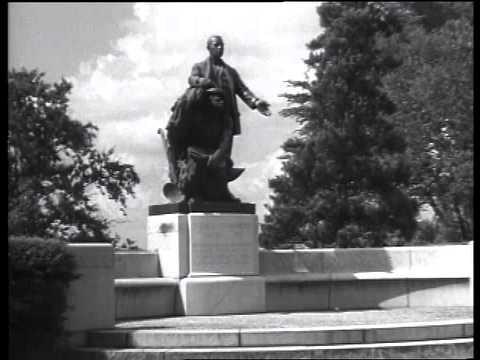In the midst of World War II, a young Ronald Reagan lent his voice to a compelling short film that showcased the bravery and skill of the groundbreaking Tuskegee Airmen. Despite being produced over 75 years ago, the film remains a poignant reminder of the courage and determination of these trailblazing African American pilots. Join us as we delve into the history and meaning of this little-known chapter in both military and cinematic history.
Ronald Reagan’s Early Role in Documentaries
during his early career in Hollywood, Ronald Reagan took on a lesser-known role as a narrator in a short film produced in 1945. The documentary highlighted the heroic efforts of the tuskegee Airmen, a group of African American fighter pilots who served in World War II. reagan’s distinctive voice and authoritative delivery added depth and emotion to the powerful story of these trailblazing aviators.
Despite being a relatively unknown project in Reagan’s filmography, his involvement in this documentary marked a significant moment in his transition from actor to political figure.The film not only shed light on the bravery and sacrifice of the Tuskegee Airmen, but also showcased Reagan’s early talent as a narrator and storyteller. This unique role foreshadowed his future career as a charismatic leader and communicator on both the silver screen and the political stage.
A Significant Look at the Tuskegee Airmen in World War II
In 1945, a short film was narrated by Ronald Reagan that shed light on the astonishing story of the tuskegee Airmen during World war II.This film documented the struggles and triumphs of the first African American military aviators in the United States Armed Forces.
The Tuskegee Airmen overcame segregation and discrimination to become one of the most respected fighter groups of world War II. Flying over 15,000 missions and earning over 150 Distinguished Flying Crosses, these brave pilots proved their skill and determination in the face of adversity. Their legacy continues to inspire future generations to reach for the skies, breaking barriers and achieving greatness.
Reagan’s Legacy in Honoring African American Heroes
Ronald Reagan’s legacy in honoring African American heroes extends back to 1945 when he narrated a short film about the Tuskegee Airmen,an vital group of African american pilots who served in World war II.
In the film, Reagan highlighted the bravery and professionalism of the Tuskegee Airmen, showcasing their contributions to the war effort and their fight against discrimination. This powerful tribute by Reagan helped bring attention to the struggles and triumphs of these unsung heroes, shining a light on their sacrifices and paving the way for greater recognition of African American contributions to American history.
Recommendations for Viewing Reagan’s 1945 Film on the tuskegee Airmen
For those interested in learning more about the Tuskegee Airmen, Ronald Reagan’s 1945 film is a must-watch. The short film provides a unique glimpse into the incredible bravery and skill of the first African American aviators in the United States military. Reagan’s narration adds a personal touch to the story, making it a moving and powerful tribute to these trailblazing pilots.
Here are some recommendations for viewing Reagan’s film on the Tuskegee Airmen:
- Set aside some time to watch the film in one sitting to fully immerse yourself in the story.
- Pay attention to the historical context provided in the film to gain a deeper understanding of the challenges faced by the Tuskegee Airmen.
- Reflect on the significance of the Tuskegee Airmen’s contributions to the war effort and civil rights movement.
Concluding Remarks
Ronald Reagan’s narration of the short film about the Tuskegee Airmen in 1945 serves as a reminder of the bravery and contribution of these trailblazing African American pilots. through his words, their heroism and sacrifice are immortalized for generations to come. As we reflect on this important chapter in history, may we continue to honor and celebrate the legacy of the Tuskegee Airmen, and never forget the impact they had on our nation.


